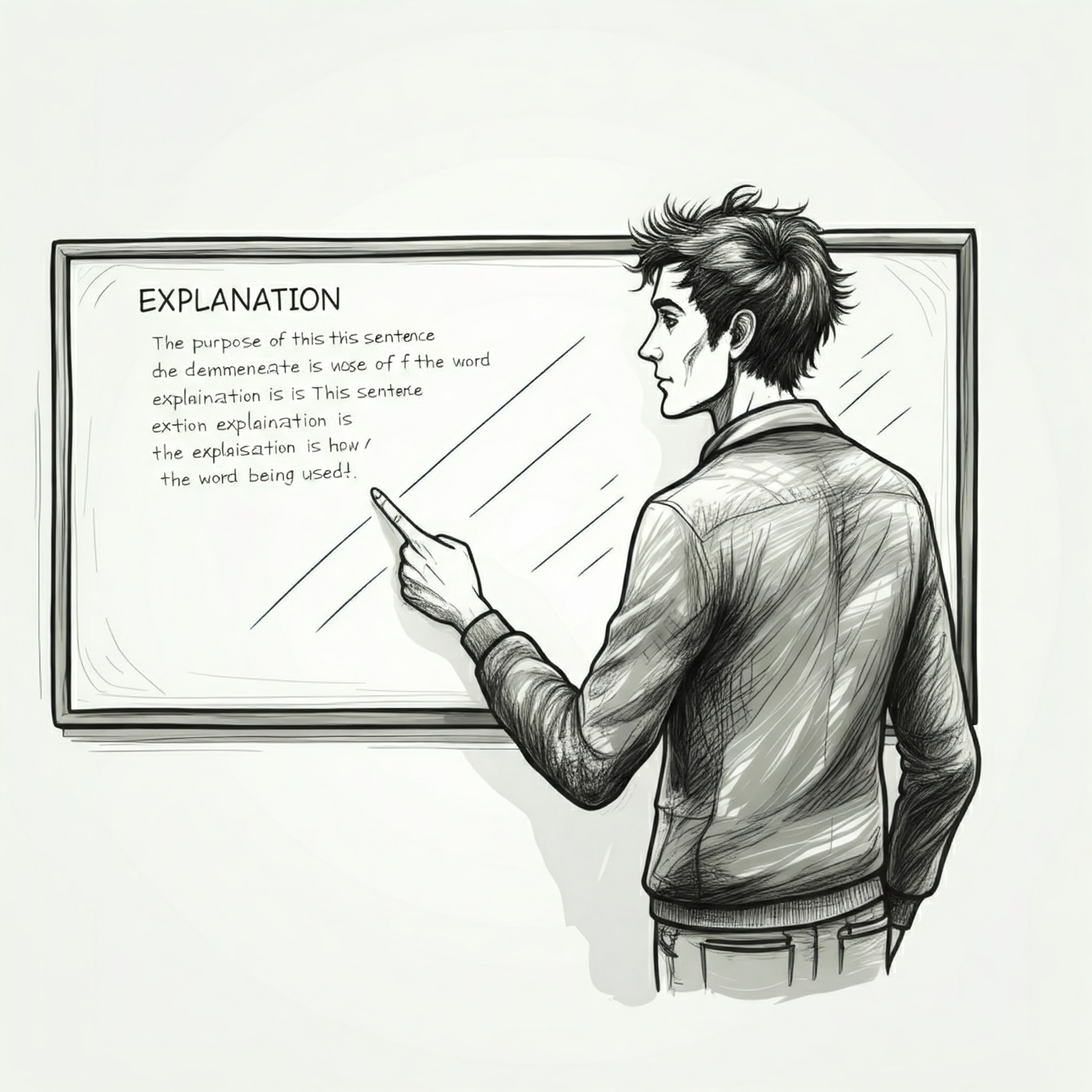Explanation
Definition
Explanation refers to a statement or account that makes something clear or understandable. It involves describing, clarifying, or interpreting information, actions, or events to convey meaning or resolve confusion.
Parts of Speech
- Noun
Pronunciation
American English
- IPA Pronunciation: /ˌɛkspləˈneɪʃən/
- Respelling: eks-pluh-NAY-shuhn
British English
- IPA Pronunciation: /ˌɛkspləˈneɪʃən/
- Respelling: eks-pluh-NAY-shuhn
Etymology
The word "explanation" originates from the Latin term "explanatio," meaning "a making plain," derived from "explanare," which combines "ex-" (out of) and "planus" (clear or flat). It entered Middle English through Old French, maintaining its sense of making something clear or comprehensible.
Derivatives
- Explain (verb)
- Explainer (noun)
- Explanatory (adjective)
- Unexplained (adjective)
- Explanationless (adjective, rarely used)
Synonyms
- Clarification
- Interpretation
- Description
Antonyms
- Confusion
- Obfuscation
- Ambiguity
Usage
The noun "explanation" is widely used in contexts where understanding or clarification is required. For example, "Her detailed explanation of the process helped everyone understand the task." It is also commonly used in academic, professional, and casual settings to resolve doubts or misunderstandings.
Related Terms
- Clarify: To make something less confusing or more understandable.
- Justify: To provide reasons or arguments in support of an action or idea.
- Elucidate: To explain or make something clear, often with additional detail.
Detailed Definitions
Noun
- A statement or account that makes something clear: Refers to the act of clarifying or resolving uncertainty.
- Example: "The professor's explanation of the theory was thorough and engaging."
- The reason or justification given for an action or event: Refers to an account that provides understanding of why something happened.
- Example: "She gave a reasonable explanation for her absence."
explanation








